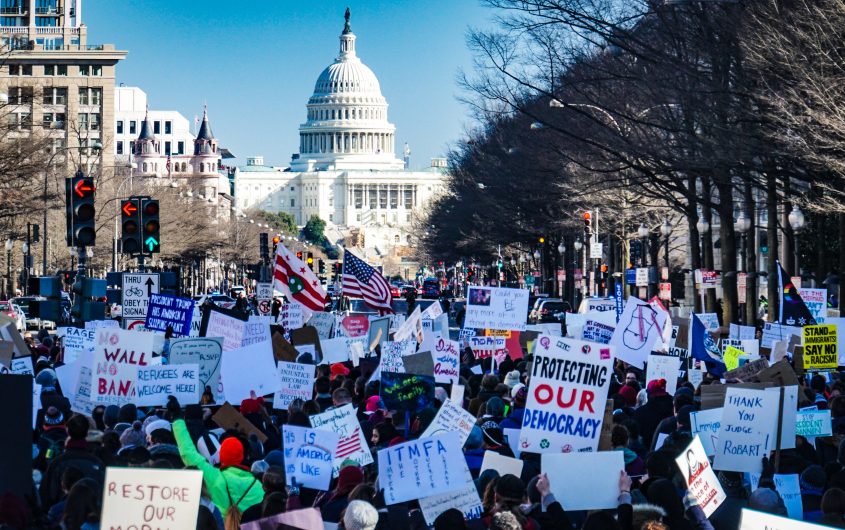
Ted Eytan via Flickr Creative Commons 2.0
Testing Democratic Resilience
Evidence from the United States and Germany
Speaker: Maria Skóra, DAAD/AGI Research Fellow
Moderator: Eric Langenbacher, Senior Fellow and Director of the Society, Culture, & Politics Program, AGI
As Europe and the United States confront a surge of illiberal populism and the erosion of democratic principles, the concept of democratic resilience has emerged as a significant subject of academic scrutiny. An expanding body of research indicates that in addition to the institutional framework and legal design (structural and systemic setup), democratic resilience also hinges on underlying values and norms. This actor-oriented paradigm, which examines political culture, intermediate institutions such as the media or organized interest groups, and citizen attitudes, provides a more nuanced understanding of why certain democratic regimes are more capable of withstanding assaults on democratic institutions or enduring prolonged autocratic periods than others. This presentation will first discuss various theoretical perspectives on democratic resilience. Subsequently, applying the analytical framework of four levels of democratic resilience proposed by Lührmann and Merkel, it will concentrate on selected examples from the United States as a case study to illustrate how democratic resilience works in practice. Finally, it will also compare these findings with Germany in pursuit of identifying similarities and differences between the two nations.
Maria Skóra is an independent consultant and advisor based in Berlin, serving as an Associated Researcher at the Institut für Europäische Politik and a Policy Fellow at Das Progressive Zentrum. Her multidisciplinary research examines the themes of (re)democratization, populism, and political sociology. From 2022 to 2024, she was a lead researcher at RESILIO, a project dedicated to analyzing the factors influencing the resilience of the rule of law within the EU27. Additionally, her scholarly work has concentrated on enhancing the EU’s rule of law toolbox in light of the persistent democratic backsliding evident in certain member states. Prior to her current roles, she contributed her expertise to the Humboldt-Viadrina Governance Platform and the Hertie School. In 2019, she held the position of Visiting Fellow at the American-German Situation Room, hosted by the German Marshall Fund of the United States and AGI. She holds a Master’s degree in Sociology and a PhD in Economics.
is an independent consultant and advisor based in Berlin, serving as an Associated Researcher at the Institut für Europäische Politik and a Policy Fellow at Das Progressive Zentrum. Her multidisciplinary research examines the themes of (re)democratization, populism, and political sociology. From 2022 to 2024, she was a lead researcher at RESILIO, a project dedicated to analyzing the factors influencing the resilience of the rule of law within the EU27. Additionally, her scholarly work has concentrated on enhancing the EU’s rule of law toolbox in light of the persistent democratic backsliding evident in certain member states. Prior to her current roles, she contributed her expertise to the Humboldt-Viadrina Governance Platform and the Hertie School. In 2019, she held the position of Visiting Fellow at the American-German Situation Room, hosted by the German Marshall Fund of the United States and AGI. She holds a Master’s degree in Sociology and a PhD in Economics.
This event is supported by the DAAD with funds from the Federal Foreign Office.






